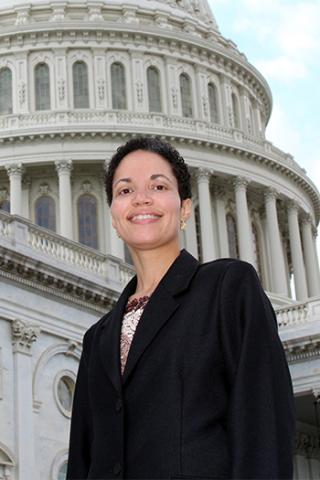The Voices of African Descent Bisexual Women: Experiences Related to Identity and Disclosure in Social Support Networks and Health Care Settings in the United States and United Kingdom

Kristin M. Brown, MSW, MPA
Ph.D. Candidate
United Kingdom: Summer 2010, Spring 2014
I chose to undertake graduate study in Social Work and Public Administration at Florida State University, beginning in 2003, completing internships in hospital and hospice settings. I met with government and non-profit health care providers, to learn about quality of care in service provision for communal, sexual and gender minorities in the US, and then abroad beginning in 2010. I also met with sexual minority women in the US, UK, and Ghana, who shared about barriers and access to resources.
I sought to increase attention to sexual minority women’s needs, through a cross-national dissertation study in different health care systems. My efforts were supported by scholars, community workers, and agencies in the US and UK as early as 2009. Having spoken primarily with lesbian women through 2010, I increased efforts to reach bisexual women. Although the focus was with cisgender women, transgender women are affected by disparities that also urgently need to be addressed. From 2013 to 2014, I implemented the first cross-national dissertation research study focusing with bisexual women of African background.
The preliminary findings highlight similarities and differences in the experiences of the women in the US and UK. The views are of those who participated in individual in-person interviews, and are not intended to be representative of all bisexual women of African descent.
The women stated it was beneficial to have social support networks comprised of lesbian, gay, bisexual, transgender or queer (LGBTQ) people of color, who accept and affirm the women’s bisexual identity. Women in the UK were more likely to have a beneficial social support network of LGBTQ people of color, though some felt isolated.
Women in the UK have national health care; while, women in the US can still lack adequate health care. The women in the US and UK, who have coverage and access to health care, may still prefer not to disclose sexual orientation to providers due to concerns of how they may be treated. Some avoid seeking health care out of concern about potential stigma and prejudice. The women in the UK stated they had received HIV testing, while some women in the US had not yet taken an HIV test. Few women in the US or UK had received health information specifically for women with a same-sex partner, from providers.
The women made specific recommendations for increasing integration in professional training, outreach, and service provision: 1) More LGBTQ-identified providers; 2) LGBTQ-affirming nondiscrimination policies posted in agency settings; 3) relevant literature for sexual minority women; 4) information about healthy relationships, especially on how to communicate assertively about sexual health with a female partner; 5) comprehensive STD and HIV testing on demand; 6) access to quality mental health care; and 7) social service policies that acknowledge the families of sexual minority women. The findings are intended to increase knowledge and understanding of communal and sexual minority women, for improved health care, social services, and policy making.
Scholarly presentations & publications resulting from the project:
- Brown, K., & Abell, N. (2015, May). Bisexual Women of African Ethnicity: Improving HIV Prevention and Services. 27th Annual National Conference on Social Work and HIV/AIDS, New Orleans. (National).
- Brown, K. (2013, September). Strategizing to Include Black LGBT Women in HIV and STD Public Health Policies and Programs. 4th Annual OUT on the Hill Black LGBT Leadership Summit, Washington, D.C. (National).
